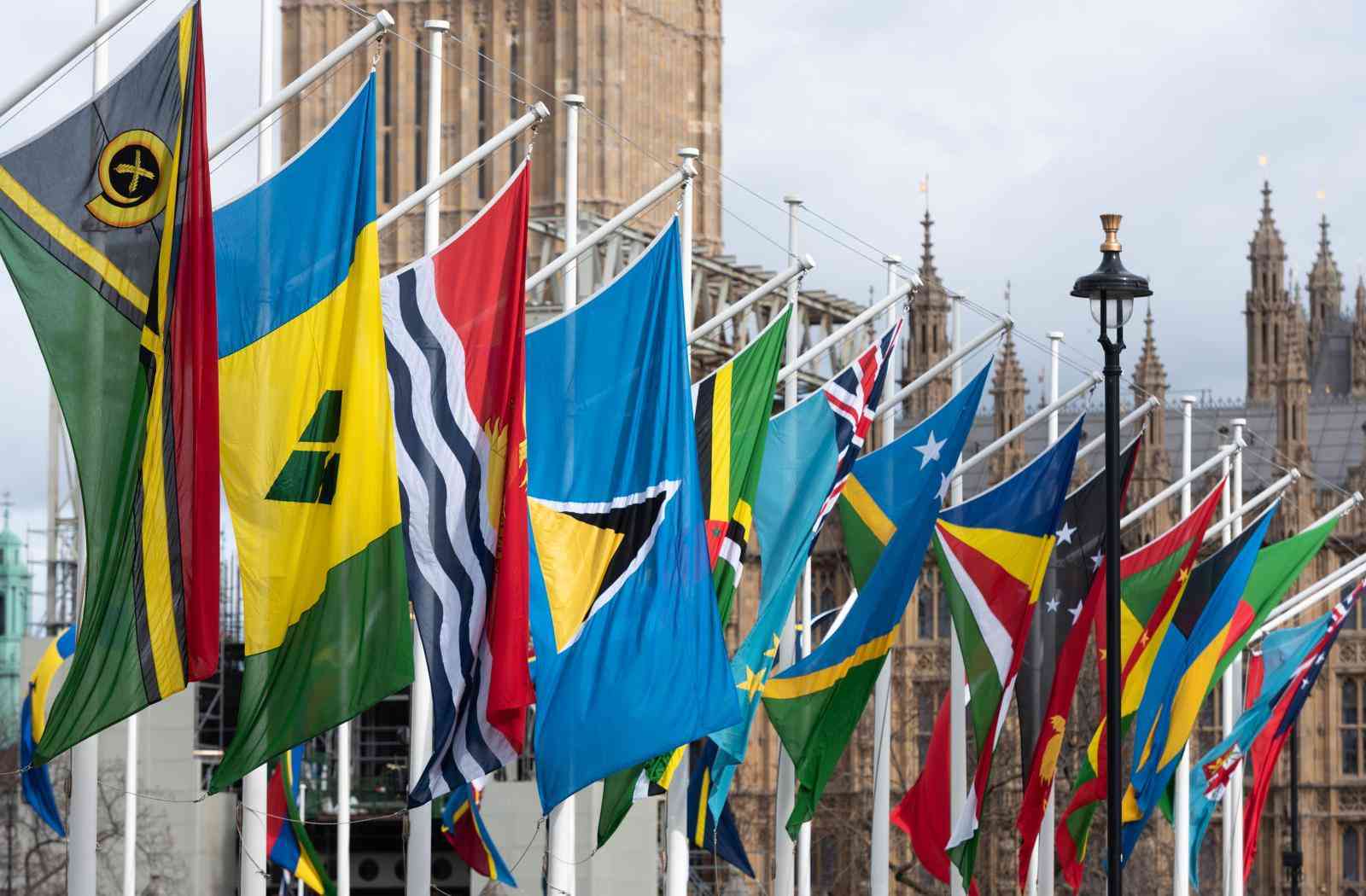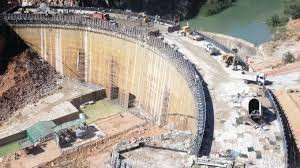
WILL we ever learn the brutal truth?
There have been calls recently by some human rights activists in Zimbabwe for the Commonwealth to delay readmission of Zimbabwe to the group of largely former British colonies.
This comes in the wake of a resurgence in human rights violations and repression by the (President Emmerson) Mnangagwa administration.
One of the most glaring examples is the unjust arrest and continued denial of bail to renowned journalist Blessed Mhlanga, who has been languishing in prison for 64 days.
His only “crime” is interviewing war veteran, former Zanu PF central committee member and Member of Parliament, Blessed Geza, who boldly called for the immediate resignation of Mnangagwa.
This gross miscarriage of justice has understandably triggered outrage, both within Zimbabwe and internationally, as Mhlanga was merely doing his job as a journalist — a profession that, in any democratic society, should be protected rather than criminalised.
A few days ago a member of the British House of Lords, Jonny Oates, criticised Zimbabwe’s record on media freedom, citing the country’s long and shameful history of intimidating, detaining and murdering journalists.
He called on his colleagues to hold First Lady Auxillia Mnangagwa accountable during her scheduled visit to the United Kingdom (UK) in June.
- CCC urged to push for dialogue over reforms
- A peep into Matenganyika’s artistic closets
- The Bioskop Short Film Competition is back
- Mangwe farmers benefit from agric projects
Keep Reading
International condemnation has been growing, particularly after Zimbabwe enacted the Private Voluntary Organisations (PVO) Amendment Bill last month — legislation widely regarded as a direct assault on civil society.
By effectively placing non-governmental organisations under State control, the Mnangagwa regime has sent a chilling message to those working to hold the government accountable for widespread corruption, looting of national resources, rampant human rights abuses and the rapid deterioration of people’s living standards.
Zimbabwe’s domestic situation continues to worsen alarmingly.
Over 80% of the population now lives in poverty and unemployment stands unofficially at over 90%.
Once regarded as the breadbasket of southern Africa, Zimbabwe is now a country where millions survive on informal trade, vending and subsistence farming.
Amid this humanitarian catastrophe, it is hardly surprising that voices are rising against any hasty reintegration to the Commonwealth.
Yet, what I find most curious — even troubling — is the apparent delusion among many Zimbabweans that salvation will come from the international community, rather than through our own decisive action.
Time and again, we Zimbabweans have pinned our hope on external forces to liberate us from the grip of tyranny.
We loudly demand intervention from foreign governments, international organisations, and groupings like the Commonwealth, yet they remain largely passive in our national struggles.
Whenever mass action is proposed, we immediately reel out excuse after excuse.
When a demonstration is called, the first reason given for non-participation is fear of State brutality — a fear grounded in grim reality, given the government’s violent suppression of protests in August 2018 and January 2019, where unarmed civilians were gunned down in cold blood.
Yet, when activists call for non-confrontational forms of protest, such as stay aways or mass shutdowns — where people simply stay home and withdraw their labour — we hear even louder complaints.
People lament that they cannot afford to forgo a day’s income, citing families to feed and bills to pay.
While understandable on the surface, this reluctance reveals a deeper malaise: an unwillingness to endure short-term pain for long-term gain.
We appear determined to maintain the status quo, so long as our individual survival is not threatened, even as we decry the national collapse around us.
Moreover, despite living in countries that uphold the right to protest and support democratic freedoms, many Zimbabweans in the diaspora have shown little to no willingness to actively challenge the regime.
While they are vocal online, when it comes to organising tangible action, such as demonstrating outside Zimbabwe’s embassies or during high-profile visits by government officials to host countries, the response has been largely apathetic.
Even with the opportunity to mobilise in countries that respect their right to protest, those in the diaspora seem to have failed to channel their frustrations to action.
One would have expected that, with millions of Zimbabweans living in the diaspora, our embassies — or visits by top officials to those countries — would be overwhelmed by protesters demanding justice and accountability back home.
Yet, perhaps even those in the diaspora see such mass action as disruptive, given that they, too, have mouths to feed.
This apparent indifference highlights a troubling gap between the online rhetoric and the real-world activism needed to challenge the Zimbabwean regime’s repressive policies and hold it accountable on the international stage.
There are even those, both in Zimbabwe and abroad, who dismissed Geza’s call for mass action simply because he once belonged to Zanu PF.
To them, any call for change emanating from former insiders is suspect, a continuation of factional battles that should not concern ordinary Zimbabweans.
Yet, if change is to come, it cannot be about personalities or histories— it must be about principle.
If someone, regardless of their past, now advocates for meaningful reform, should we not at least listen and assess the merit of their message?
Change is never delivered by a perfect coalition.
Waiting for an ideal, pure movement to emerge before taking action is nothing but another excuse for inaction.
This is the real tragedy of Zimbabwe.
We desperately want change — we mourn our condition on social media, in churches, in homes, in civil society boardrooms — but when it comes to action, we hide.
We expect others to fight for us while we cheer from the sidelines.
It reminds me of the old fable of the little red hen which wanted to bake a cake.
She asked for help from the other animals to gather the ingredients, mix the dough and bake the cake, but none was willing to assist.
Yet when the cake was ready, they all wanted to eat it.
We want the fruits of freedom, democracy and prosperity, but we are unwilling to make the sacrifices necessary to secure them.
We cannot have our cake and eat it too.
Life, unfortunately, does not work that way.
It is grossly naïve to expect the international community to do our work for us.
They have already done more than enough.
Western countries imposed targeted travel and financial restrictions on the Zanu PF elite involved in electoral fraud, human rights violations and corruption.
The Commonwealth suspended Zimbabwe in 2002 on similar grounds, which prompted the late former President Robert Mugabe to withdraw the country from the organisation the following year.
International observer missions, including the African Union, Sadc, the European Union and the Commonwealth, were unanimous that Zimbabwe’s 2023 harmonised elections were neither free nor fair.
In fact, there has been overwhelming international acknowledgement of the abuses Zimbabweans are subjected to.
Yet despite all this, what have we done internally to capitalise on that momentum?
The world has grown weary of Zimbabwe’s situation because it sees that Zimbabweans themselves are not hungry for change.
Moreover, it is naive — even dangerously so — to believe that the international community will endlessly prioritise Zimbabwe’s problems.
The world has far more pressing matters on its plate: the Russia-Ukraine war, the global economic instability triggered by changes to United States tariffs under Donald Trump’s influence, the conflicts in Gaza and the Sahel, among countless others.
Zimbabwe, once a beacon of international solidarity, is increasingly becoming a forgotten cause.
We are rapidly exhausting the goodwill of the world, not because our plight is any less serious, but because we have demonstrated time and again that we are not serious about liberating ourselves.
It is also important to remember that the Commonwealth is not a sincere guardian of human rights.
Among its members are countries like Uganda, where opposition figures are routinely harassed; Pakistan, where enforced disappearances are common; India, where Press freedom has sharply declined and Bangladesh, where political repression is rampant.
If these nations remain within the Commonwealth despite their questionable records, what compelling reason would the organisation have to continue excluding Zimbabwe, especially when Zimbabweans themselves seem largely indifferent to their fate?
Furthermore, it would also be naïve to believe that the West’s foreign policy is anchored solely on promoting democracy and human rights.
History is replete with repressive regimes that have enjoyed unconditional Western support simply because they served strategic political or economic interests.
From Saudi Arabia’s absolute monarchy, where political dissent is brutally crushed, to Egypt’s authoritarian government under Abdel Fattah el-Sisi, whose regime has jailed thousands of activists, the West has often turned a blind eye when it suits its agenda.
Even during the Cold War, despots like Mobutu Sese Seko of then Zaire were propped up for decades despite their egregious abuses, merely because they aligned with Western anti-communist objectives.
Zimbabweans must wake up to this reality: no foreign government will sacrifice its interests to champion our freedom unless we ourselves are willing to fight for it.
The United States (US), UK and European Union (EU) only turned against Zimbabwe when the chaotic and violent land reform programme of the early 2000s impacted white farmers, many of whom were citizens or descendants of their countries.
It was not about the suffering of ordinary Zimbabweans, no.
That explains why the Mnangagwa regime is now falling over itself to compensate former white farmers, aware that this gesture is the real ticket to restored relations with the West — not improved human rights or free elections.
Indeed, the signs are everywhere.
Since Mnangagwa’s coup-scaffolded rise to power in 2017, repression has worsened, not improved.
Yet, both the UK and EU have lifted most sanctions and the US, through its new ambassador Pamela Tremont, is signalling an eagerness to “reset” relations with Harare.
This trajectory will continue.
It is only a matter of time before the few remaining measures are lifted and Zimbabwe finds itself fully re-embraced by the international community, even as repression persists or intensifies.
Meanwhile, we will remain stuck in the same cycle of complaining and blaming others for our woes, instead of acknowledging the brutal truth: We are complicity in our own continued oppression through our passiveness.
By our inaction, we send the unmistakable signal to the world that we are broadly content with the status quo, that the noise made by activists and civil society is exaggerated and that no urgent action is required.
Soon, Zimbabweans will find themselves alone, abandoned, while the world wines and dines with Mnangagwa, celebrating a new “normalisation”.
We will have no one but ourselves to blame.
These repeated calls for the world to act while we remain passive are now nauseating, tired and frankly, a national embarrassment.
If we are serious about freedom, it is time we realised that no one owes us liberation.
It must be earned — through our own blood, sweat and tears.
Real change will only come when Zimbabweans are willing to stand up and demand the freedom, dignity and prosperity they so desperately crave.
- Tendai Ruben Mbofana is a social justice advocate and writer. He writes here in his personal capacity.










